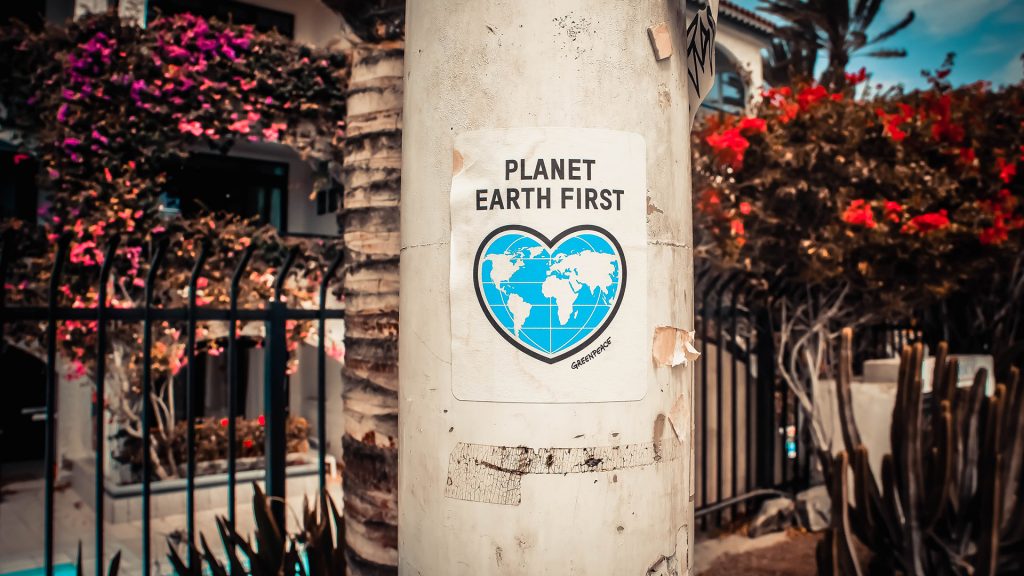
EDITOR’S NOTE: In early February, we told you about an exciting opportunity to report more deeply and effectively on climate change: an invitation to news organizations to team up with scientists, other journalists, and a range of experts as part of a new Covering Climate Collaborative led by the Local Media Association. The LMA has now announced the first set of nearly two dozen newsrooms that have signed on to the project. You’ll see some familiar names here, including colleagues from the local TV news world. The association’s chief innovation officer, our former Knight-Cronkite News Lab colleague Frank Mungeam, has the details in a guest post that’s also a passionate argument for local journalists — including the journalists in your newsroom — to lead the way in covering the climate crisis. It’s not too late to join this effort. What better time than Earth Day to think about it?
–Andrew Heyward, Senior Research Professor, TV News
Breaking news: We face a climate “emergency” according to everyone from the heads of the European Union to the Pope. That realization can be overwhelming. After all, climate change is a planet-sized problem. But we see and experience the effects of climate change locally.
That’s why local reporting is the most direct way to connect people in our communities to the real-world impacts of climate change. It’s also the most direct path to empower communities with reporting on solutions, and meaningful actions we can take individually and collectively.
Local media outlets looking to lean in to climate coverage might have a surprising ally: Your trusted local TV meteorologist. Yes, the same person who’s been giving you those “Bus Stop Forecasts” and the “7-Day Planner” in many cases also happens to have an advanced degree in meteorological sciences.
As news consumers become increasingly mobile-first in their daily weather habits — when it comes to the 3-day outlook and school forecasts, “there’s an app for that!” — these local TV meteorologists can evolve to be more: the chief science officers of their local newsrooms.
These “mets” combine science knowledge, a trusted audience relationship and large following, along with weather graphics tools that enable clear and visual explanatory storytelling. That is a potent recipe for compelling local climate reporting.
It’s why Local Media Association is excited to have seven local TV stations among the 22 newsrooms in its newly launched Covering Climate Collaborative. Local newsrooms like these recognize both the opportunity and the responsibility to do more and deeper climate coverage:
“Climate change impacts our stations on personal, professional and business levels. We all live in this rapidly changing world, and we’re all experiencing the effects of climate change first-hand. Our stations are committed and excited to join the LMA Covering Climate Collaborative, which may well result in the most important journalism they do this year and beyond.” — Emily Barr, President and CEO, Graham Media Group
“The impacts of climate change threaten to fundamentally alter not just our local habitat but Chicago’s place in the world. WBEZ Chicago is proud to be a part of a collaborative working to deepen understanding of how vital the natural environment is to our region’s past, present and future health.” — Tracy Brown, Managing Editor, WBEZ Chicago Public Media
“Northern California is experiencing unprecedented smoke conditions, power outages and fire danger firsthand with greater urgency each year. We are on track for even more serious drought conditions. It’s clear that these changing climate conditions are impacting our underserved communities the most. Our research shows that 68% of people in the Bay Area say the climate change problem is ‘huge’. ABC7 is committed to telling these stories and finding local solutions.” — Tom Cibrowski, President and General Manager, KGO-TV San Francisco (ABC Owned Television Stations)
“Arizona is getting warmer and drier every year, and ABC15 Arizona (KNXV) wants to show our viewers how we can be smarter and adapt to the changing demands of climate change. The LMA Covering Climate Collaboration is a great opportunity for us to show the real-world impact of climate change, and what our community can do about it.” — Anita Helt, Vice President and General Manager, KNXV-TV Phoenix (E.W. Scripps Company)
Audience data is on the side of these local news leaders. People are consuming more climate coverage, and want more reporting than they currently see.
A data analysis by Chartbeat of news website content and traffic found that, while climate reporting increased from 2017 to 2019 (the pandemic suppressed coverage of climate and other issues in 2020), audience consumption of that reporting has gone up even more. In other words, the audience appetite exceeds even our increase in coverage.
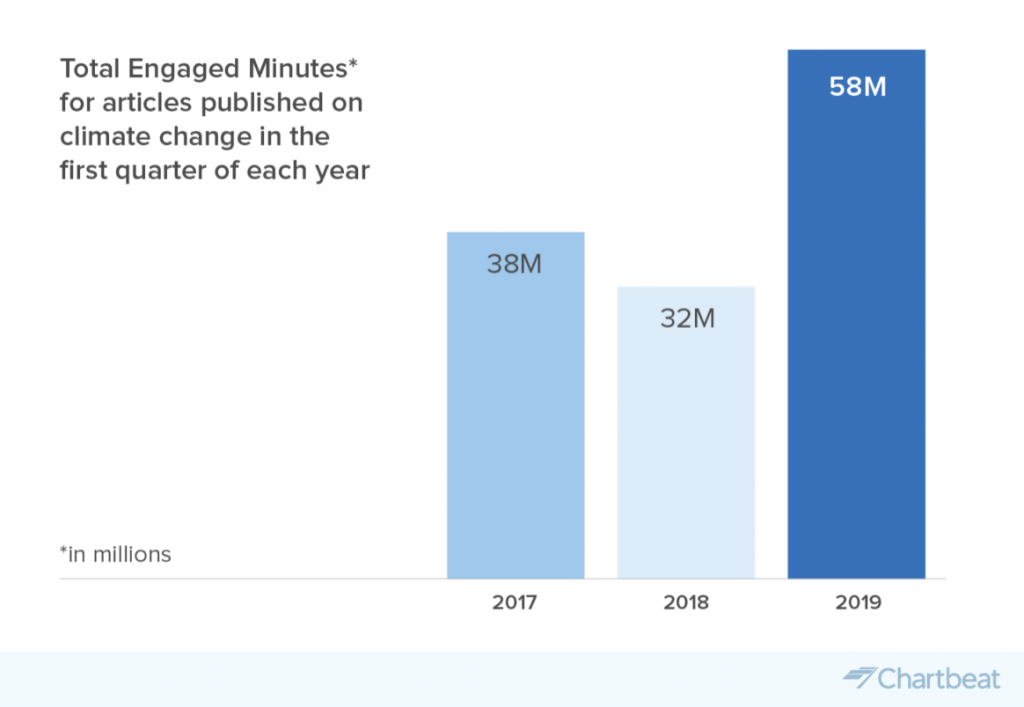
Likewise, data from Yale’s annual Climate Opinion Survey show more and more Americans say they’ve personally experienced the effects of climate change; they want more climate coverage; and, alarmingly, most are not seeing as much coverage as they want.
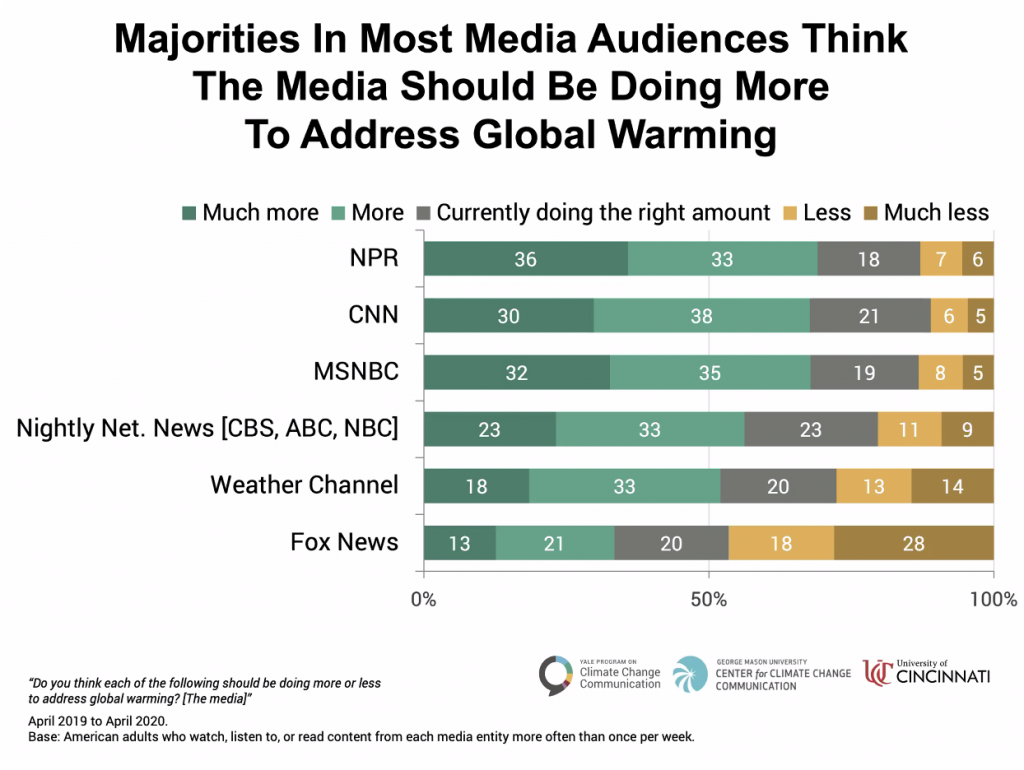
The data also show that local newsrooms should not be misled by a few loud and vocal “Fake News!” comments on their Facebook page when it comes to current attitudes about the facts around climate change. In their landmark research describing the “Six Americas,” researchers at Yale and George Mason University found that a solid majority of Americans are “concerned” or outright “alarmed,” dwarfing those who “doubt” or “deny” climate change.
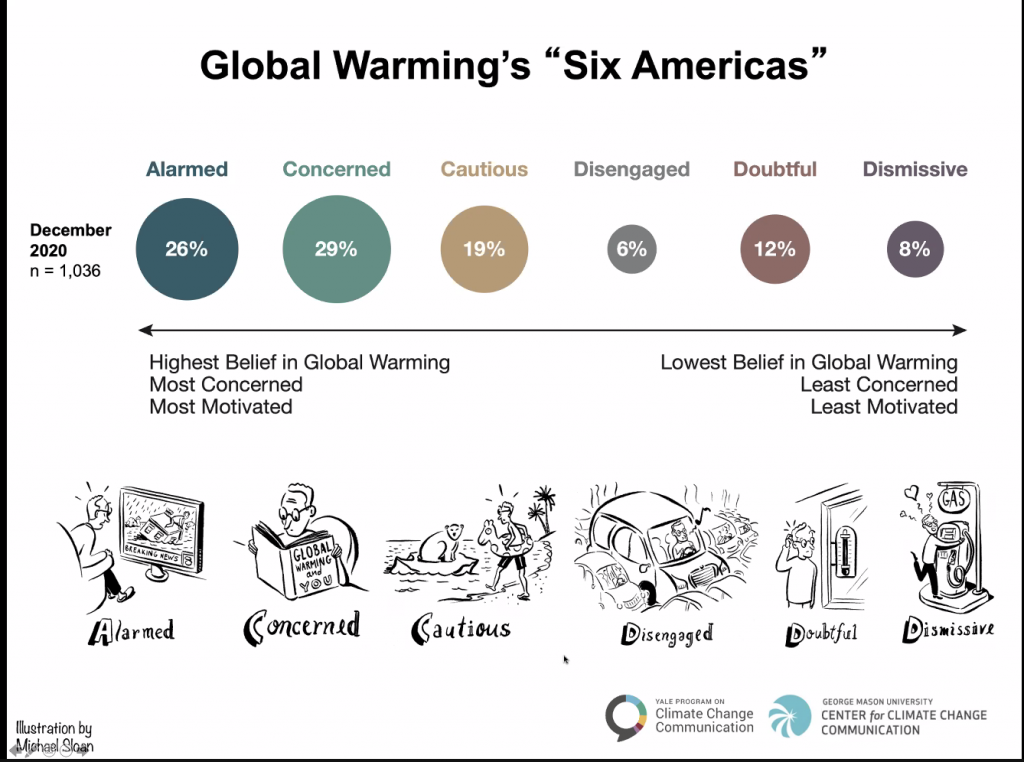
And those numbers have shifted significantly in just the past five years toward “alarm.”
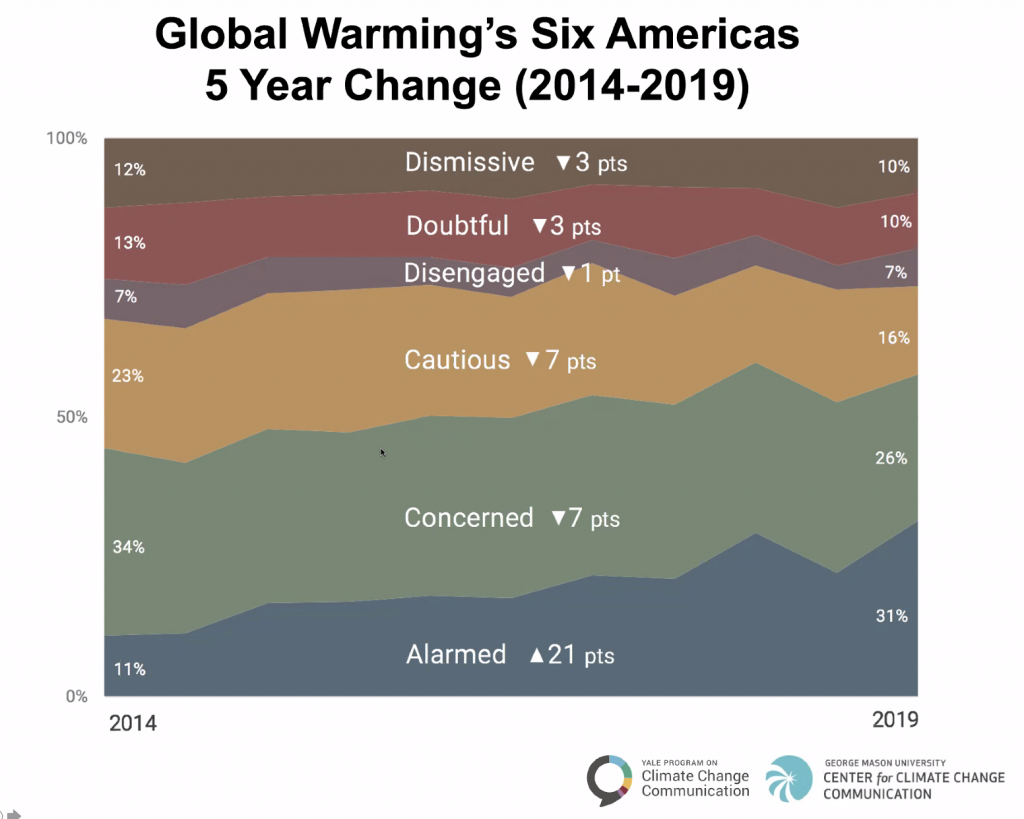
LMA created the Covering Climate Collaborative to support and amplify the work of local newsrooms reporting on this critical issue. These newsrooms will lead the way in moving local climate coverage beyond the silo of a narrow “beat,” to better connect the ways in which climate intersects with and impacts other local issues, whether they are health issues or infrastructure policy decisions or, importantly, making the vital connection between climate and social justice. Far too often, the harmful effects of climate change fall disproportionately on communities of color, and that story must be told.
The participants will share climate reporting, and collaborate on joint storytelling projects in ways that take full advantage of the cross-platform skills of the collaborative, which includes print, digital, radio and broadcast newsrooms. Coordinating storytelling efforts across text, audio and video is the best way to meet audiences where they are.

Finally, these newsrooms will benefit from the expertise of key science and journalism partners committed to excellence in climate reporting. From organizations like Climate Matters and SciLine to Solutions Journalism Network, these newsrooms will be able to tap trustworthy experts who can communicate clearly the science of climate change. LMA will share case studies from the collaborative on lessons learned that can be used by any local newsroom looking to deepen its climate coverage.
Climate change may be a planet-sized problem, but it is no longer distant in time or space. Our audiences are experiencing its impacts locally, right now. Now is the moment for local climate journalism to lead.
Covering Climate Collaborative: Partners on Science and Journalism
● Climate Matters is a climate reporting resource program that helps meteorologists and journalists report on climate impacts and solutions in ways that are local, immediate, and personal — grounded in the latest science.
● George Mason University Center for Climate Change Communication is the nation’s first research center devoted entirely to improving public communication about climate change.
● Climate Central is a science and communications organization working to make climate change local, relevant, and understandable.
● SciLine, based at the nonprofit American Association for the Advancement of Science, is a philanthropically-supported free service that connects reporters to knowledgeable, articulate scientist-sources and validated evidence on deadline.
● Climate Communication is a Climate Communication is a non-profit science and outreach project supported by grants from the Rockefeller Brothers Fund and the Hartfield Foundation.
● Solutions Journalism Network’s mission is to spread the practice of solutions journalism: rigorous reporting on responses to social problems so that every day people are exposed to stories that help them understand problems and challenges, and stories that show potential ways to respond.
About Local Media Association/Local Media Foundation
Local Media Association/Local Media Foundation is intensely focused on creating new and sustainable business models for news to ensure a healthy future for local journalism, which is essential to a strong democracy. LMF is a 501(c)(3) charitable trust affiliated with LMA.
Get the Lab Report: The most important stories delivered to your inbox